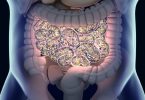Obsessive Compulsive Disorder (OCD) affects millions of people around the world. In most cases, OCD is a mild and temporary condition that may be caused by environmental factors that fade in a short period of time. In fact, it can be argued that many have experienced a very mild form of OCD which passed quickly.
However, there are those who are more seriously affected by this condition and as such, they require treatment.
What is OCD?
OCD can best be characterized as an anxiety disorder that causes thoughts of unease, apprehension or fear that is then expressed in repetitive behaviors that attempt to reduce the anxiety levels. OCD manifests itself in symptoms where a person engages in repeated, unnecessary checking of locked doors, washing of hands, cleaning clothes or a myriad of behaviors that are repeated only to relieve the feelings of anxiety, stress or fear.
OCD affects both adults and children. Plus, it affects both genders nearly equally as well. The number of people affected by OCD is such that “obsessive-compulsive” has entered the lexicon and is often used to describe temporary behavior that has signs or characteristics of OCD. In addition, OCD often affects people of above average intelligence and those who have obtained great social standing, such as the famous billionaire Howard Hughes whose behavior was described as having OCD symptoms in his later years.
How to Treat OCD
There are several recognized means of treating OCD, all of which have been proven to be effective for different patients.
Behavioral Therapy: Also known as “Exposure & Ritual Prevention” or ERP, this helps the sufferer of OCD to gradually learn to tolerate their anxieties so they do not engage in the ritual behavior. Usually, such therapy involves exposing the patient to what causes the anxiety in a controlled setting and then not perform the behavior. For example, learning to check the lock on the door once and then leaving it alone.
ERP treatment is considered very effective for many mild forms of OCD and is the most prescribed course of action for this type of obsessive-compulsive behavior.
Medication: If ERP is not effective or the OCD has a greater hold on the person, then certain medication treatments involving selective serotonin reuptake inhibitors (SSRI) may be prescribed. Since excessive serotonin in the body is what helps generate the OCD behavior, the reduction of it will help ease the compulsive need to perform the behavior.
Electroconvulsive Therapy (ECT): ECT has been found to be effective in certain severe cases on OCD. Usually this is used when medication and behavioral therapy have failed.
Psychosurgery: This is generally considered the last resort when it comes to treating OCD. In this manner, the OCD sufferer undergoes surgery to the brain which cuts or destroys the small amount of brain tissue that is responsible for this behavior. Less radical forms of this type of treatment include deep brain and vagus nerve stimulation that does not damage any brain tissue.
For those who are suffering with OCD, finding the right treatment is usually a step-by-step process that leads to full recovery and getting back to their normal lives.







